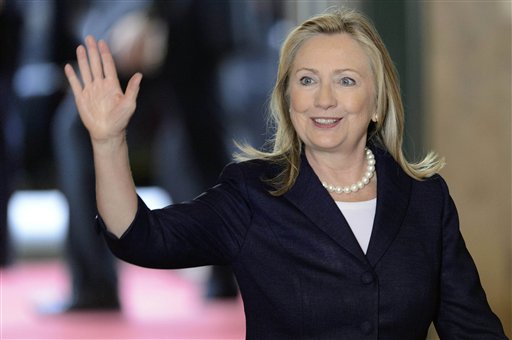GENEVA — An international conference Saturday accepted a U.N.-brokered peace plan for Syria, but left open the key question of whether the country’s president could be part of a transitional government.
The U.S. backed away from insisting that the plan explicitly exclude President Bashar Assad from any role in a new government, hoping the concession would encourage Russia to put greater pressure on its longtime ally to end the violent crackdown that the opposition says has claimed over 14,000 lives.
U.S. Secretary of State Hillary Clinton insisted that Assad would still have to go, saying it is now “incumbent on Russia and China to show Assad the writing on the wall.”
“There is a credible alternative to the Assad regime,” she said. “What we have done here is to strip away the fiction that he and those with blood on their hands can stay in power.”
Moscow had refused to back a provision that would call for Assad to step aside, insisting that outsiders cannot order a political solution for Syria and accusing the West of ignoring the darker side of the Syrian opposition. The opposition has made clear it would not take part in a government in which Assad still held power.
Russian Foreign Minister Sergey Lavrov underlined that the plan does not require Assad’s ouster, saying there is “no attempt in the document to impose on the Syrian people any type of transitional process.”
More than a year into the uprising, Syria’s opposition is still struggling to overcome infighting and inexperience, preventing the movement from gaining the traction it needs to instill confidence in its ability to govern.
The U.N. plan calls for establishing a transitional government of national unity, with full executive powers, that could include members of Assad’s government and the opposition and other groups. It would oversee the drafting of a new constitution and elections.
Kofi Annan, a U.N. envoy to Syria, said following talks that “it is for the people of Syria to come to a political agreement.”
“I will doubt that the Syrians who have fought so hard to have independence … will select people with blood on their hands to lead them,” he said.
The envoy had earlier warned the permanent members of the U.N. Security Council – Britain, China, France, Russia and the United States – that if they fail to act at the talks hosted by the United Nations in Geneva, they face an international crisis of “grave severity” that could spark violence across the region and provide a new front for terrorism.
Copy the Story LinkSend questions/comments to the editors.



Success. Please wait for the page to reload. If the page does not reload within 5 seconds, please refresh the page.
Enter your email and password to access comments.
Hi, to comment on stories you must . This profile is in addition to your subscription and website login.
Already have a commenting profile? .
Invalid username/password.
Please check your email to confirm and complete your registration.
Only subscribers are eligible to post comments. Please subscribe or login first for digital access. Here’s why.
Use the form below to reset your password. When you've submitted your account email, we will send an email with a reset code.